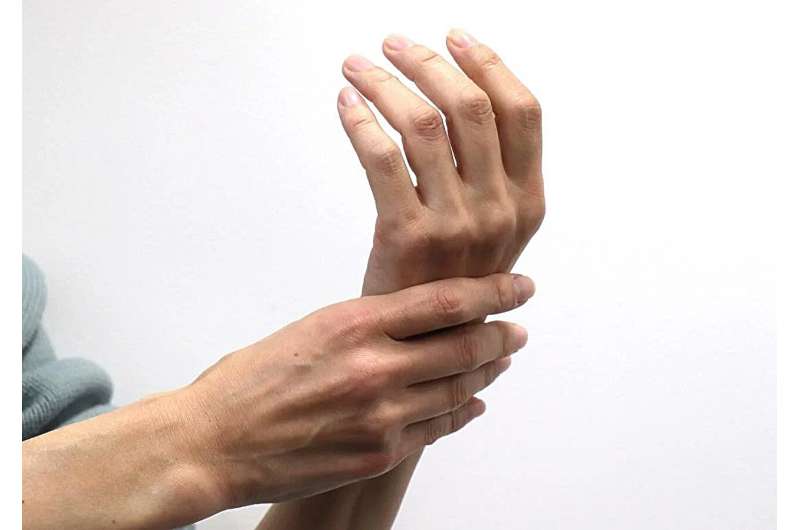This article has been reviewed according to Science X's editorial process and policies. Editors have highlighted the following attributes while ensuring the content's credibility:
fact-checked
trusted source
proofread
Paresthesia symptoms negatively impact spinal surgery satisfaction: Study

Researchers at Osaka Metropolitan University have assessed why post-operative symptoms such as pins and needles, sudden cold, burning, itching, and numbness in the limbs remain in patients suffering from cervical spondylotic myelopathy, even after surgery.
The researchers also evaluated the patients' satisfaction with postoperative treatment. They found that it was lower for those who still had paresthesia in their hands and feet, regardless of whether their motor symptoms had improved or not.
Their findings were published in the journal Spine.
Pins and needles, sudden cold, burning, itching, numbness in the limbs—these are symptoms of paresthesia in cervical spondylotic myelopathy caused by compression of the spinal cord pathway in the cervical spine due to aging or other factors. Motor symptoms such as difficulty walking and urinating develop gradually, requiring surgical treatment.
Surgery for cervical spondylotic myelopathy aims to improve and/or prevent further deterioration in physical function and quality of life. However, patients are often not satisfied with their treatment for myelopathy when they have severe residual paresthesia, even when physical function and quality of life are improved after surgery.
A team of researchers led by Dr. Koji Tamai of the Department of Orthopedics at the Graduate School of Medicine at Osaka Metropolitan University surveyed 187 patients with paresthesia who underwent spinal surgery to assess postoperative symptoms. They found that 86 patients reported continuing to experience severe residual paresthesia, as indicated by a score of 40 or more out of 100 on a self-scoring scale used as a standard in surgery assessments.
"The study also found that 'satisfaction with postoperative treatment' was lower for those who still had paresthesia in their hands and feet, regardless of whether their motor symptoms had improved or not," Dr. Tamai said. "Furthermore, this study revealed that patients who complain of pain prior to surgery are more likely to have residual paresthesia. We hope future research will focus on developing treatment strategies for residual paresthesia."
More information: Koji Tamai et al, Residual Paresthesia after Surgery for Degenerative Cervical Myelopathy, Spine (2023). DOI: 10.1097/BRS.0000000000004907



















